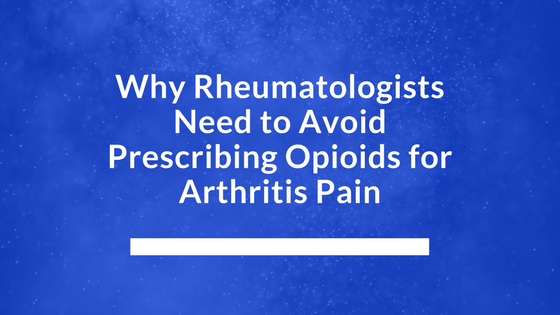Rheumatologists are busier than ever today, treating patients of all ages with a variety of complaints, the most well-known being arthritis. While many people consider arthritis a condition seen primarily in the elderly, rheumatologists commonly treat much younger patients with arthritis as well.
The increase in younger patients with arthritis can be attributed to the increased popularity of youth sports, resulting in more injuries at a younger age which can lead to the development of arthritis at a younger age. Regardless of the age of the patient, rheumatologists need to avoid prescribing opioids for arthritis pain as much as possible.
There has been a great deal of news coverage regarding the “opioid epidemic,” prompting President Trump to declare it a public health emergency.
Addiction to opioids results in ongoing medical problems and increased medical costs. According to Dr. Jonathan Kay, Chair of Rheumatology at the University of Massachusetts Medical School, disease-modifying antirheumatic drugs (DMARDs) are a much better and more efficient option for treatment of arthritis. He further adds that if a patient with arthritis becomes addicted to opioids, as commonly occurs, the patient is then dealing with addiction in addition to arthritic pain, particularly since long-term use of opioids requires higher doses for the patient to obtain the same relief.
The American College of Rheumatology notes that DMARDs help alter the actual course of arthritis and consequently, result in a reduction of complications and worsening of the disease. However, they also add that these medications can take weeks or months to become fully capable and usually require taking non-steroidal anti-inflammatory drugs to help control pain and swelling in the joints while waiting for the DMARDs to kick in.
The Journal of the American Osteopathic Association stresses the importance of exercise in controlling arthritic pain but recommends the patient to be well educated on proper training, including the use of a heat warm up and appropriate types and amounts of activity. Additionally, the journal notes that a regular exercise program will improve the patient’s overall health and may result in decreased depression and mood changes that are often seen in patients with arthritis.
Considering the alternative medical treatments that are available, rheumatologists need to avoid prescribing opioids for arthritis pain and choose a less addictive option that will be more beneficial for the patient’s arthritic pain and overall well being.

